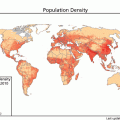Classification: ICD-9 066.2; ICD-10 A92.2
Syndromes and synonyms: Venezuelan equine encephalomyelitis, Venezuelan equine fever, Mucambo virus fever.
Agents: Venezuelan equine encephalitis virus (VEEV), an enveloped, spherical, single-stranded positive-sense RNA virus, genus Alphavirus in the family Togaviridae. Epizootic or epidemic VEE viruses belong to subtypes IAB and IC. Enzootic VEE complex viruses belong to subtypes II to VI and ID, IE, and IF. With the exception of IE strains, these do not cause disease in equids, but can cause sporadic disease in humans. VEEV is considered a potential biological warfare agent.
Reservoir: Principally sylvatic rodents; also marsupials, bats, and shore birds may be involved in the enzootic virus cycle.
Vector: Mosquitoes. The main vector of enzootic VEEV is the Culex (Melanoconion) spp. (Spissipes group). During VEEV outbreaks, Ochlerotatus taeniorhynchus is often the main vector in coastal regions. Epizootic/epidemic subtypes of VEEV are transmitted by mosquitoes of many different genera.
Transmission: Mosquito bite. Direct person-to-person transmission has not been documented.
Cycle
Stay updated, free articles. Join our Telegram channel

Full access? Get Clinical Tree




